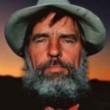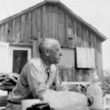Engineering Eden: the true story of a violent death, a trial, and the fight over controlling nature
Description
More Details
Subjects
Environmentalism -- United States -- History
National parks and reserves -- United States -- History
Nature -- Effect of human beings on -- Yellowstone National Park -- History -- 20th century
Negligence -- United States -- History -- 20th century
Trials -- California -- Los Angeles -- History -- 20th century
United States. -- National Park Service -- Trials, litigation, etc
Violent deaths -- Yellowstone National Park -- History -- 20th century
Yellowstone National Park -- Environmental conditions -- History -- 20th century
Yellowstone National Park -- Management -- History -- 20th century
Also in this Series
Published Reviews
Booklist Review
*Starred Review* This is not the sort of exposé national-park enthusiasts might hope to see as the National Park Service celebrates its centenary. But longtime park ranger Smith's (Nature Noir, 2005) fervent investigation into bear attacks in Yellowstone is not a lurid retelling of tragic encounters between naive humans and abused wildlife. Instead it is a dramatic, eye-opening chronicle of the struggle to preserve wilderness while making it accessible to the public. The driving narrative force is Smith's avid coverage of the 1975 trial in which the Alabama farming family of Harry Walker, a hardworking 25-year-old killed by a grizzly near Old Faithful, sued the National Park Service, a case featuring testimony by top wildlife scientists: A. Starker Leopold, son of the genius of land ethics, Aldo Leopold, and Frank Craighead, who, with his twin, John, formed the most forward-looking research team in the then-nascent field of ecology. A galvanizing storyteller fluent in the conflict between environmental science and politics, Smith brings every player into sharp and indelible focus as he illuminates the urgent issues national parks grapple with as they struggle to wisely manage predators, invasive species, wildfires, and people. With fascinating forays into topics ranging from garbage-habituated bears to starving elks, fire-dependent sequoias, and government cover-ups, Smith spotlights an overlooked watershed moment in our troubled relationship with the wild.--Seaman, Donna Copyright 2016 Booklist
Publisher's Weekly Review
Smith (Nature Noir), a former park ranger, deftly demonstrates how intrepid young camper Harry Walker's 1972 death in Yellowstone National Park following a grizzly bear attack was not merely a tragic accident but a poignant symbol of the legacy of human hubris with respect to the natural world. Since its inauguration exactly a century earlier, Yellowstone had faced a "famously paradoxical mandate" to both provide entertainment to recreational hikers and to restore and preserve the "primitive conditions" of the area's native flora and fauna. These goals proved nearly mutually exclusive when the same interventions that made the park hospitable to humans-wildfire suppression, predator extermination, garbage disposal-compromised the stability of its ecosystem and the safety of both humans and animals. The narrative hinges on the dramatic legal trial following Walker's death, which brought together some of America's most renowned biologists and epitomized the quandary "about how much scientists ought to manipulate and control nature in order to preserve it." It's an ambitious, persuasive, and nuanced book; Smith will impress readers with scientific rigor and real suspense as he weaves together the histories of modern ecology, the National Park Service, and the ever-evolving relationship between humans and nature. Agent: Sandra Dijkstra, Sandra Dijkstra Literary. (June) © Copyright PWxyz, LLC. All rights reserved.
Library Journal Review
Yellowstone National Park is one of the few places left in the lower 48 states where it's possible to run into that majestic symbol of the American wilderness-the grizzly. But in the late 1960s, Yellowstone's longtime practice of allowing bears to raid the area's garbage dumps led to serious clashes between people and hungry, aggressive animals when park officials decided abruptly to close the dumps. Former Sierra Nevada park ranger Smith (Nature Noir) relates the chain of events that brought Yellowstone into federal court after one of its grizzlies killed an illegal camper from Alabama in 1972. He brings into sharp focus the backgrounds and personalities of the individuals involved in this multifaceted story-the victims of bear attacks and their families, attorneys, Park Service employees and top officials, wildlife biologists, and ecologists-and skillfully interweaves their various outlooks. VERDICT This meticulously investigated history of Yellowstone and its wildlife management problems should appeal to fans of Jack Olsen's classic Night of the Grizzlies, as well as to readers interested in the broader issue of how much humans should intervene in nature in order to preserve it.-Cynthia Lee Knight, Hunterdon Cty. Historical Soc., Flemington, NJ © Copyright 2016. Library Journals LLC, a wholly owned subsidiary of Media Source, Inc. No redistribution permitted.
Kirkus Book Review
A searching study of a tragedy and the legal contest that followed it, one that shaped the course of national park policy in the modern age.Is a natural environment modified by humans still natural? It's not just a question for philosophers. In 1972, when a young Alabaman was killed by a bear in Yellowstone National Park, a swirl of questions hinged on the larger issue of how autonomous nature should be allowed to be. Are national parks run for the benefit of humans or of the wildlife that inhabits those places? Such questions are not inconsequential, and, as Smith (Nature Noir: A Park Ranger's Patrol in the Sierra, 2005) chronicles in this provocative account, they absorbed many thinkers, from ecologists to park administrators and, of course, lawyers and judges. The case of the young man was unfortunate and perhaps avoidable, but bears were, after all, part of the entertainment that drew people to Yellowstone. The case also highlighted a divide between environmentalists of various stripes on whether natural places should be allowed to operate under their own rulesenter this park on danger of being eatenor regulated to ensure the safety and comfort of humans. Arguing for regulation, if guardedly, the eminent naturalist Aldo Leopold's son Starker put the question so: "Only fools are comfortable operating with less than complete knowledge in a contingent world, but we have to get used to it." The Park Service, after decadesand that lawsuit, which Smith charts in circumstantial but not overwhelming detailreaffirmed the findings of what has come to be known as the Leopold Report, using scientific methods to help move threatened populations, triage habitat, and the likeall necessities, it seems, in the face of hordes of humans. Smith, who understands that nature is "a web of complex relations," tells this complicated story clearly and well. Excellent reading for students of park policy, wildlife management, and other resource issues. Copyright Kirkus Reviews, used with permission.
Booklist Reviews
*Starred Review* This is not the sort of exposé national-park enthusiasts might hope to see as the National Park Service celebrates its centenary. But longtime park ranger Smith's (Nature Noir, 2005) fervent investigation into bear attacks in Yellowstone is not a lurid retelling of tragic encounters between naive humans and abused wildlife. Instead it is a dramatic, eye-opening chronicle of the struggle to preserve wilderness while making it accessible to the public. The driving narrative force is Smith's avid coverage of the 1975 trial in which the Alabama farming family of Harry Walker, a hardworking 25-year-old killed by a grizzly near Old Faithful, sued the National Park Service, a case featuring testimony by top wildlife scientists: A. Starker Leopold, son of the genius of land ethics, Aldo Leopold, and Frank Craighead, who, with his twin, John, formed the most forward-looking research team in the then-nascent field of ecology. A galvanizing storyteller fluent in the conflict between environmental science and politics, Smith brings every player into sharp and indelible focus as he illuminates the urgent issues national parks grapple with as they struggle to wisely manage predators, invasive species, wildfires, and people. With fascinating forays into topics ranging from "garbage-habituated" bears to starving elks, fire-dependent sequoias, and government cover-ups, Smith spotlights an overlooked watershed moment in our troubled relationship with the wild. Copyright 2014 Booklist Reviews.
Library Journal Reviews
Yellowstone National Park is one of the few places left in the lower 48 states where it's possible to run into that majestic symbol of the American wilderness—the grizzly. But in the late 1960s, Yellowstone's longtime practice of allowing bears to raid the area's garbage dumps led to serious clashes between people and hungry, aggressive animals when park officials decided abruptly to close the dumps. Former Sierra Nevada park ranger Smith (Nature Noir) relates the chain of events that brought Yellowstone into federal court after one of its grizzlies killed an illegal camper from Alabama in 1972. He brings into sharp focus the backgrounds and personalities of the individuals involved in this multifaceted story—the victims of bear attacks and their families, attorneys, Park Service employees and top officials, wildlife biologists, and ecologists—and skillfully interweaves their various outlooks. VERDICT This meticulously investigated history of Yellowstone and its wildlife management problems should appeal to fans of Jack Olsen's classic Night of the Grizzlies, as well as to readers interested in the broader issue of how much humans should intervene in nature in order to preserve it.—Cynthia Lee Knight, Hunterdon Cty. Historical Soc., Flemington, NJ
[Page 95]. (c) Copyright 2016 Library Journals LLC, a wholly owned subsidiary of Media Source, Inc. No redistribution permitted.PW Annex Reviews
Smith (Nature Noir), a former park ranger, deftly demonstrates how intrepid young camper Harry Walker's 1972 death in Yellowstone National Park following a grizzly bear attack was not merely a tragic accident but a poignant symbol of the legacy of human hubris with respect to the natural world. Since its inauguration exactly a century earlier, Yellowstone had faced a "famously paradoxical mandate" to both provide entertainment to recreational hikers and to restore and preserve the "primitive conditions" of the area's native flora and fauna. These goals proved nearly mutually exclusive when the same interventions that made the park hospitable to humans—wildfire suppression, predator extermination, garbage disposal—compromised the stability of its ecosystem and the safety of both humans and animals. The narrative hinges on the dramatic legal trial following Walker's death, which brought together some of America's most renowned biologists and epitomized the quandary "about how much scientists ought to manipulate and control nature in order to preserve it." It's an ambitious, persuasive, and nuanced book; Smith will impress readers with scientific rigor and real suspense as he weaves together the histories of modern ecology, the National Park Service, and the ever-evolving relationship between humans and nature. Agent: Sandra Dijkstra, Sandra Dijkstra Literary. (June)
[Page ]. Copyright 2016 PWxyz LLC





























